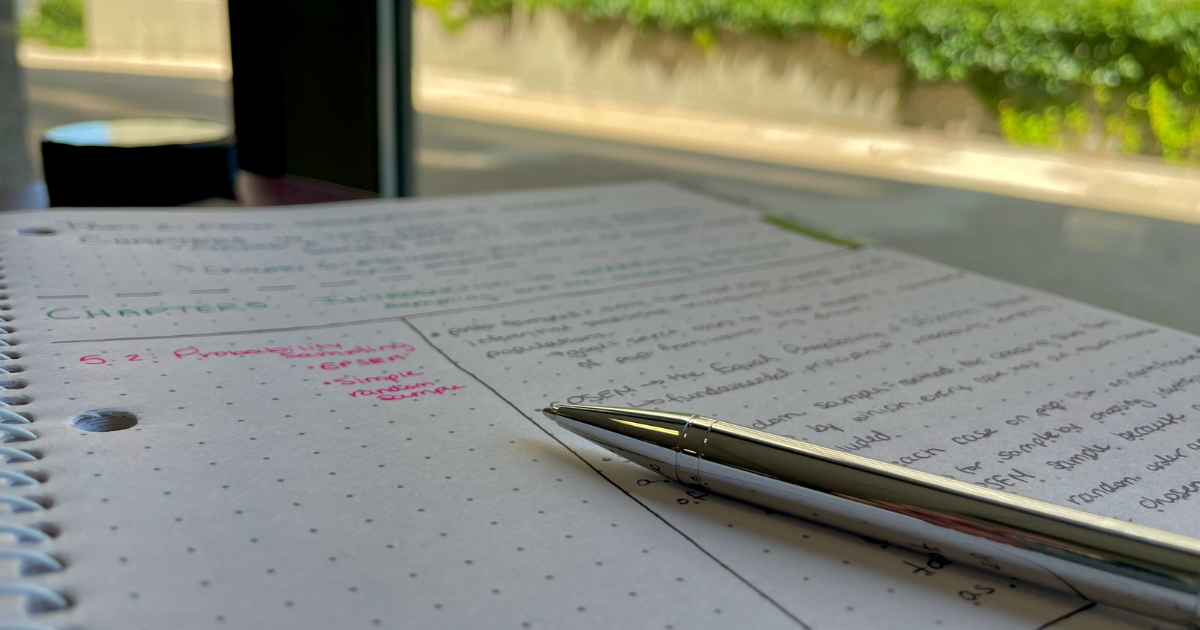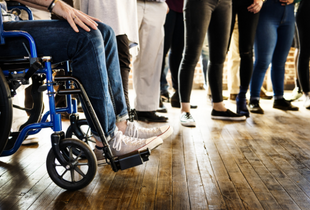Accessible Education: Thanks For Being There
 Written by: M. Bettencourt, 5th Year History
Written by: M. Bettencourt, 5th Year History
Photo by: M. Bettencourt
On a sunny September afternoon of this year, I approached one of my professors before our 3-hour lecture and introduced myself. The conversation went something like this:
“Hi, Professor. I’m M,” I said.
“Hello,” he said.
“I have academic accommodations for my mental health disability.”
Just as I was about to launch into my spiel on my mental illness (my tragic superhero background, if you will), he smiled and told me he recalled my name from an email he received from Accessible Education outlining my accommodations. He told me that he is always happy to accommodate a student and that he hoped I’d enjoy his course.
I cannot adequately stress the sigh of relief I breathed that day. You see, I struggle with personal guilt regarding my accommodations—I’m so used to hearing from people that accommodations are unprofessional or that I’m just making my problems up or that accommodation is just bureaucratic cheating. I’m so used to the fear of being judged for needing assistance that I have turned to explaining my mental health disability in detail, in the hopes that my professors won’t think I’m abusing the accommodation system. But all that fear nonsense is exactly that—nonsense.
The likelihood that a professor would shame you for requiring assistance for a disability is low—that is not how accommodations are meant to be handled at Western. There’s actually a whole policy outlining the rights and responsibilities of everyone involved in your accommodation process. When you register with Accessible Education and activate your accommodations with your counselor, your professors are notified of your accessibility requirements—though they are not provided with the nitty-gritty details of your disability, that is private information that they are not required to know. And as our university is bound by both its own recognition of each student’s inherent dignity and equality and the Ontario Human Rights Code, disabled students have the right to pursue accommodations that would give them a fair chance to succeed in their studies.
While I cannot speak for students with physical and more visible disabilities who may require accommodation, I can speak on my experiences as a Western student with a mental health disability. I only truly overcame my personal biases and accessed my accommodations during my 4th year at Western—the 2020-21 school year. My accommodations have been lifesavers for me. I still work as hard as I always have to do my best academically, but now there are measures in place to help me when my disability makes it hard for me to succeed. My accommodations are a big part of why I remained in university and are integral to my ability to graduate this coming spring.
Though I am still working to overcome the personal biases ingrained in me against seeking help, I am glad for my accommodations. I am grateful to the policies and procedures in place to help students with disabilities succeed in our post-secondary studies. And I am eternally grateful to the Accessible Education counsellors who have worked to help me pursue my degree—they changed my life.
Read more blogs!

Tips on Becoming an Accessibility Advocate
Jalesa outlines some steps we can all take to be better accessibility allies.

10 Things I Wish I Knew About Accessibility Before Going to Western
Want to know more about accessibility at Western? Give this a read
Published on

